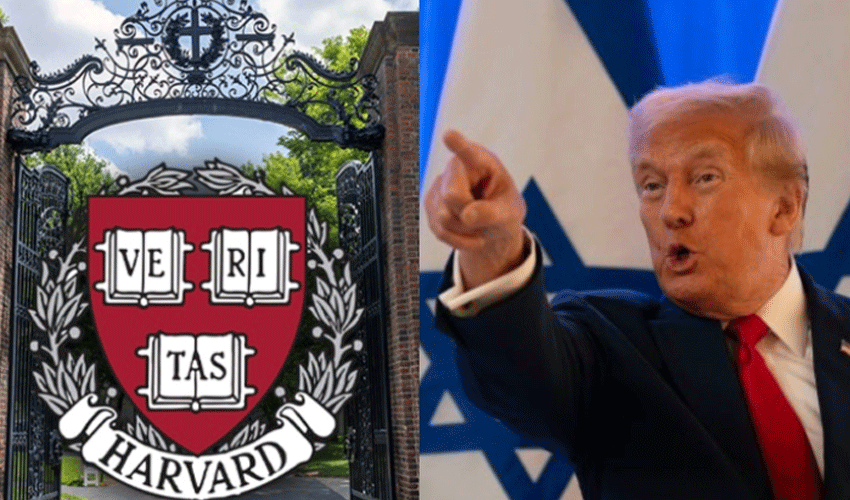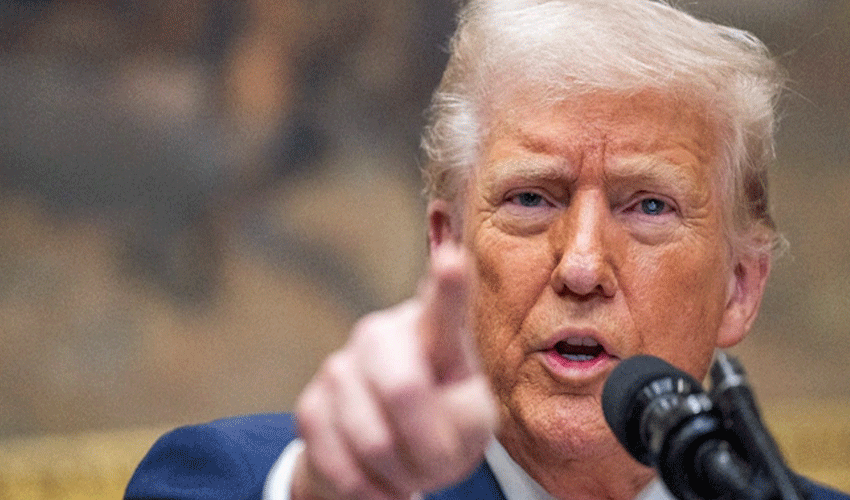The Trump administration on Monday froze approximately $2.3 billion in federal funding to Harvard University, hours after the Ivy League institution formally rejected a sweeping list of demands from the White House related to governance, student activism, and diversity policies.
The dramatic move marked the latest flashpoint in a deepening standoff between elite US universities and the federal government over campus protests linked to the Israel-Gaza conflict, and the government’s growing scrutiny of alleged antisemitism in higher education.
In a letter sent to Harvard last week, the White House had outlined a series of ten demands it claimed were necessary to address the rise of antisemitism on campus.
These included mandating “viewpoint diversity” in academic departments, reporting students “hostile” to American values, dismantling diversity, equity and inclusion (DEI) programs, and hiring an external monitor to audit certain departments.
Harvard President Alan Garber, in a strongly worded letter to the university community, said the administration's demands amounted to “direct governmental regulation of the intellectual conditions” at the university and accused the White House of overstepping its authority.
“We will not surrender our independence or relinquish our constitutional rights,” he wrote. “The work of addressing our shortcomings is ours to define and undertake as a community.”
The Department of Education responded shortly after Garber’s statement, announcing an immediate freeze of $2.2 billion in federal grants and $60 million in contracts. It said Harvard’s refusal to cooperate reflected “a troubling entitlement mindset that is endemic in our nation’s most prestigious universities.”
“The harassment of Jewish students is intolerable. It is time for elite universities to take the problem seriously and commit to meaningful change if they wish to continue receiving taxpayer support,” the department added.
This is the first time a major US university has openly rejected the administration’s directive. The Trump White House had previously revoked $400 million from Columbia University, which later agreed to several demands. Other institutions, including the University of Pennsylvania, Brown, and Princeton, are also under federal review.
President Trump has sharply criticised US universities for failing to curb antisemitic harassment, particularly following last year’s wave of student protests over the war in Gaza and US support for Israel. In a December 2023 congressional hearing, then-Harvard president Claudine Gay came under intense scrutiny for her comments on antisemitism, which, along with plagiarism allegations, led to her resignation in January.
In March, the administration announced it was reviewing $256 million in current Harvard contracts and up to $8.7 billion in multi-year commitments. Monday’s move represents the first major freeze in that process.
Garber, defending the university’s position, said the administration’s proposed agreement was “unmoored from the law” and violated the First Amendment. He acknowledged Harvard’s obligation to combat antisemitism but insisted the institution would not allow “assertions of power” to dictate its educational direction.
The funding freeze has drawn mixed reactions. Senator Bernie Sanders condemned the administration’s actions, accusing Trump of authoritarianism and praising students for resisting political pressure.
Civil rights groups have also raised concerns, warning the government’s approach could infringe on academic freedom. Meanwhile, several faculty members have filed lawsuits, arguing that the federal government is unlawfully using funding as leverage to reshape university governance and suppress free speech.
Among the demands rejected by Harvard were requirements to discipline students involved in past protests and to cease recognition of certain student clubs. The White House warned that if Harvard continued to defy the administration, nearly $9 billion in total federal aid could be at stake.
The Department of Education’s task force on antisemitism said the university’s response was “deeply disappointing” and vowed further actions if necessary.
As of Monday night, there was no indication that Harvard would reconsider its position. “We remain committed to fostering a campus that is safe, inclusive and intellectually rigorous,” Garber wrote. “But these values cannot be legislated by government decree.”



























